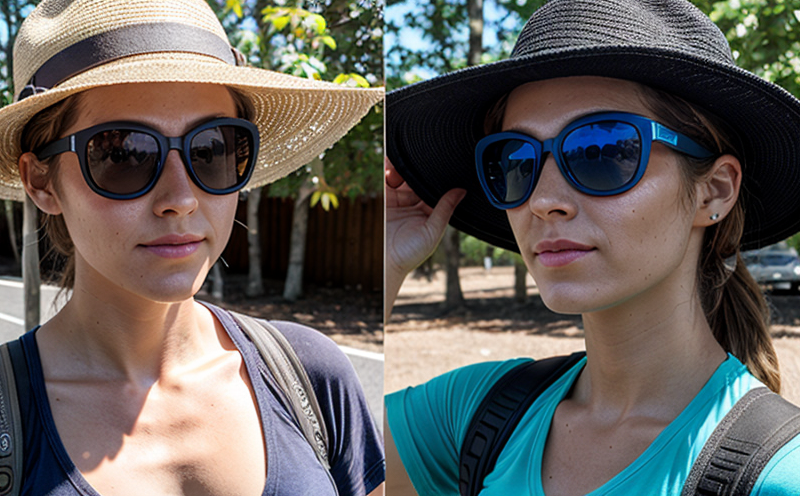ISO 24444 Cosmetics Sun protection test Determination of SPF value
The International Organization for Standardization (ISO) has developed a comprehensive standard, ISO 24444, which outlines the method to determine the sun protection factor (SPF) of cosmetic products. This service is crucial in ensuring that products meet the stringent requirements set by regulatory bodies worldwide. The SPF value indicates how much longer you can stay in the sun without getting burned when using a sunscreen compared to when not wearing any sunscreen.
The testing process involves exposing test specimens to ultraviolet (UV) radiation under controlled conditions, simulating real-world exposure scenarios. This allows for accurate determination of the SPF value, which is essential for consumer safety and product efficacy claims. The laboratory follows strict protocols to ensure that all tests are conducted in a manner consistent with ISO 24444 guidelines.
The testing apparatus used includes specialized chambers designed to deliver controlled levels of UV radiation, spectrophotometers for measuring the amount of light reflected or transmitted by the specimen, and calibrated measurement equipment. The specimens tested are typically small samples of sunscreen products that have been applied according to prescribed application methods.
Once the test is complete, detailed reports are generated which include the SPF value determined as well as any other relevant data such as UVA/UVB blocking properties. These reports serve not only as evidence of compliance with international standards but also provide valuable insights into product performance for manufacturers and researchers alike.
The importance of this service cannot be overstated, especially given increasing consumer awareness about skin health and protection against harmful UV rays. By adhering to ISO 24444 guidelines during testing procedures, laboratories like ours contribute significantly towards maintaining high standards of quality assurance across the cosmetic industry.
| Applied Standards | Description |
|---|---|
| ISO 24444 | Determination of sun protection factor (SPF) values of sunscreen products by means of in vitro evaluation methods. |
Applied Standards
The ISO 24444 standard specifies the procedures for determining the sun protection factor (SPF) values of sunscreen products using in vitro evaluation methods. This international standard is widely recognized and adopted by regulatory authorities around the world to ensure that sunscreen products provide effective protection against ultraviolet radiation.
Under this standard, the SPF value represents the ratio between the amount of UVB radiation that causes sunburn when applied to unprotected skin versus the same amount applied to skin protected by a sunscreen. A higher SPF indicates better protection from UVB rays, which are primarily responsible for causing sunburns and premature aging.
It is important to note that while SPF values measure protection against UVB rays, they do not account for UVA radiation, which penetrates deeper into the skin and can cause long-term damage. Therefore, it's advisable to choose products formulated with broad-spectrum protection that offer both UVA/UVB coverage.
Why Choose This Test?
- Promotes consumer safety by ensuring compliance with international standards.
- Provides accurate and reliable data on sun protection factors of cosmetic products.
- Aids in regulatory compliance, helping companies avoid potential legal issues.
- Serves as a valuable tool for research and development activities within the cosmetic industry.
- Supports continuous improvement efforts aimed at enhancing product performance.
- Enhances brand reputation through consistent adherence to high-quality testing practices.
Environmental and Sustainability Contributions
The determination of SPF values plays a crucial role in promoting environmental sustainability within the cosmetic industry. By ensuring that sunscreen products meet stringent protection standards, this service helps minimize the risk of overexposure to UV radiation while also encouraging responsible use of sunscreens.
Achieving optimal SPF through rigorous testing ensures that consumers can confidently apply appropriate amounts without fear of inadequate protection leading to health risks. This contributes positively to overall public health and well-being, which is aligned with broader sustainability goals.
Additionally, laboratories conducting such tests play an integral part in fostering innovation within the cosmetic sector by driving advancements towards more effective sunscreens that not only protect but also enhance user experience.





